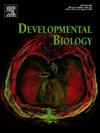哺乳动物哺乳作为教学发展的框架,生理学和细胞生物学的社会变革。
IF 2.5
3区 生物学
Q2 DEVELOPMENTAL BIOLOGY
引用次数: 0
摘要
哺乳动物的泌乳是一个动态的过程,贯穿于生物体的整个生命周期。在此,我们提出了一个生物学第三学期核心课程的框架,课程内容以哺乳为中心,允许将发育过程作为一个动态的全身体验来考察,包括发生在分子、细胞和器官组织水平上的变化。不公平的经济、社会和地缘政治制度构成了健康的社会决定因素,影响到人口中的母乳喂养率。通过整合探索社会和生物系统如何影响人类母乳喂养率的内容,学生在整个课程中培养理解科学与社会之间关系的能力,这是参与社会变革的关键核心能力。重要的是,他们询问社会系统,同时了解许多典型的生物学过程,包括自然选择和约束如何塑造了哺乳的解剖学、生理学、细胞生物学和生物化学,蛋白质、脂质和碳水化合物如何通过真核生物的膜系统合成、加工和输出,以及神经元和激素反馈机制如何调节牛奶的合成和分泌。本课程采用翻转课堂设计,强调复习和学生自我评估,支持生物知识、社会责任和元认知技能的发展。因为哺乳动物哺乳包括迷人的,微妙的,复杂的组成部分,跨越跨学科的界限,它为教师提供了丰富的机会来教授社会变化的发育生物学。本文章由计算机程序翻译,如有差异,请以英文原文为准。

Mammalian lactation as a framework for teaching development, physiology, and cell biology for social change
Mammalian lactation is a dynamic process that develops throughout the lifespan of an organism. Here we present a framework for a third semester core course in biology that centers course content on lactation allowing examination of the developmental process as a dynamic whole-body experience involving changes occurring at the molecular, cellular, and organ levels of organization. Inequitable economic, socio- and geopolitical systems structure social determinants of health, affecting rates of breastfeeding in human populations. By integrating content exploring the ways social and biological systems impact breastfeeding rates in human populations, students develop abilities to understand the relationship between science and society throughout the course, a critical core competency for engaging in social change. Importantly, they interrogate social systems while simultaneously learning about many canonical biological processes including how natural selection and constraint have shaped the anatomy, physiology, cell biology, and biochemistry of lactation, how proteins, lipids, and carbohydrates are synthesized, processed, and exported through the endomembrane system in eukaryotes, and how neuronal and hormonal feedback mechanisms regulate milk synthesis and secretion. The course is structured using a flipped-classroom design emphasizing revision and student-self assessment that supports development of biological knowledge, social responsibility, and metacognitive skills. Because mammalian lactation includes fascinating, nuanced, and complex components that cross interdisciplinary boundaries, it provides a wealth of opportunities for faculty to teach developmental biology for social change.
求助全文
通过发布文献求助,成功后即可免费获取论文全文。
去求助
来源期刊

Developmental biology
生物-发育生物学
CiteScore
5.30
自引率
3.70%
发文量
182
审稿时长
1.5 months
期刊介绍:
Developmental Biology (DB) publishes original research on mechanisms of development, differentiation, and growth in animals and plants at the molecular, cellular, genetic and evolutionary levels. Areas of particular emphasis include transcriptional control mechanisms, embryonic patterning, cell-cell interactions, growth factors and signal transduction, and regulatory hierarchies in developing plants and animals.
 求助内容:
求助内容: 应助结果提醒方式:
应助结果提醒方式:


